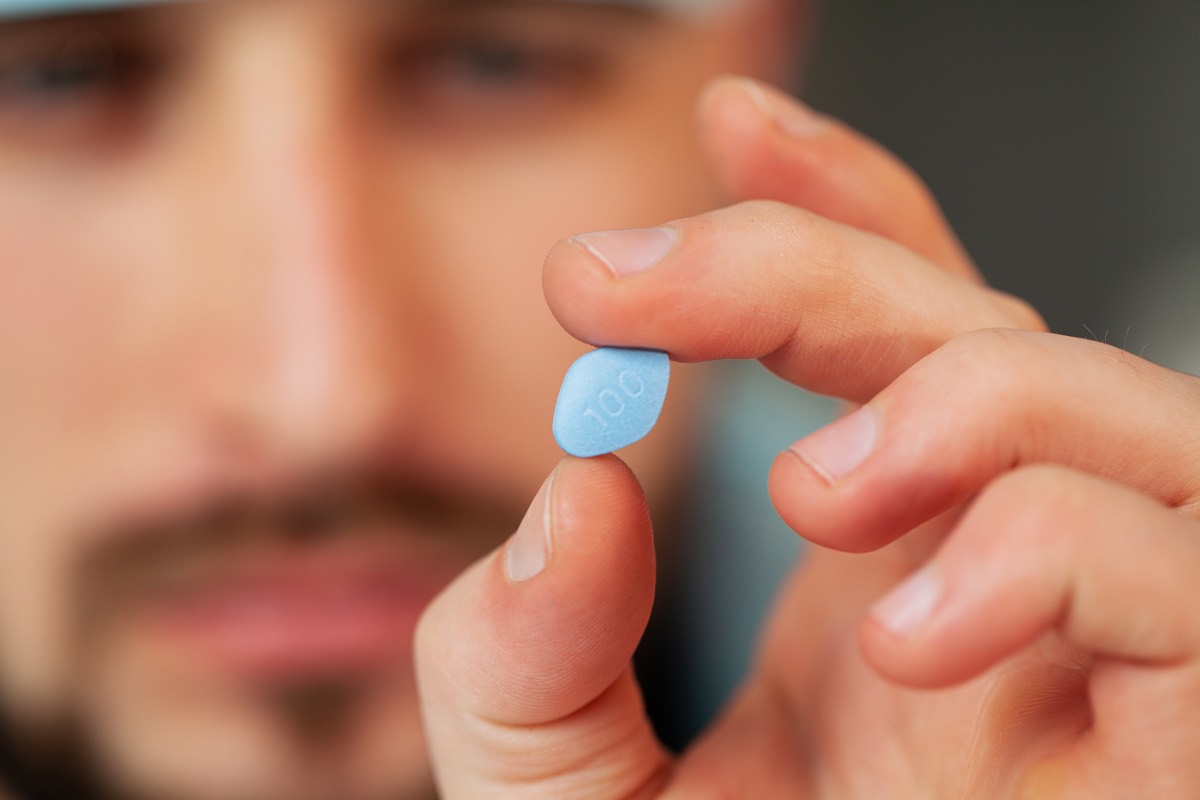Erectile dysfunction (ED) is a common condition affecting men, and sildenafil, often sold under the brand name Viagra, is a widely prescribed medication to address this issue. However, finding the right dosage is crucial for optimizing both effectiveness and safety.
In this guide, we’ll explore the recommended sildenafil dosages, factors influencing dosage decisions, and potential side effects. If you are looking for any serious ED treatment then must try dapoxetine 60mg
Understanding Sildenafil:
Sildenafil is a phosphodiesterase type 5 (PDE5) inhibitor, working by increasing blood flow to the penis during sexual stimulation. This helps men achieve and maintain an erection. The medication is available in various strengths, typically ranging from 25 mg to 100 mg per tablet.
Recommended Starting Dosage:
The standard starting dose of sildenafil for most men with ED is 50 mg. This can be adjusted based on individual response and tolerability. It’s crucial to follow the prescribed dosage provided by a healthcare professional, as self-adjustment can lead to unwanted side effects. If you want the best ED medication then try Cialis online
Factors Influencing Dosage:
- Severity of Erectile Dysfunction:
- For mild cases, a lower dose (25 mg) may be effective.
- Moderate to severe cases may require the standard 50 mg or an increased dose under medical supervision.
- Individual Response:
- Some individuals may respond well to lower doses, while others may need a higher dose for optimal results.
- Dosage adjustments should be made under the guidance of a healthcare provider based on individual response.
- Age and Overall Health:
- Older individuals or those with certain health conditions may be more sensitive to medications, warranting a lower initial dose.
- Other Medications and Interactions:
- Certain medications, especially those containing nitrates, can interact adversely with sildenafil. It’s crucial to disclose all medications to the prescribing healthcare professional to avoid potential complications.
Dosage Adjustments:
- Titration Upward: If the initial 50 mg dose is not sufficiently effective or well-tolerated, a healthcare provider may recommend titrating upward to 100 mg.
- Titration Downward: Conversely, if side effects occur or if a lower dose is more suitable for an individual, the dosage can be reduced to 25 mg.
Side Effects and Safety Considerations:
Common side effects of sildenafil include headache, flushing, indigestion, and nasal congestion. However, serious side effects such as prolonged erections (priapism) or sudden vision loss are rare but require immediate medical attention.
Response Time:
- Sildenafil is typically taken about 30 minutes to 1 hour before sexual activity. Understanding your desired response time can influence the choice of dosage.
- A higher dosage may not necessarily lead to a faster response, as the medication’s onset is primarily influenced by factors like metabolism.
Meal Timing:
- Sildenafil can be taken with or without food, but its absorption may be delayed when consumed with a high-fat meal.
- If a quicker response is desired, taking sildenafil on an empty stomach may be recommended.
Frequency of Use:
- The frequency with which you engage in sexual activity can influence the appropriate dosage.
- For daily use, a lower daily dose (e.g., 25 mg) might be prescribed, while an as-needed approach may involve a higher dose taken intermittently.
Duration of Action:
- Sildenafil’s effects typically last for about 4 to 6 hours. Understanding your sexual activity patterns can help determine whether a higher or lower dose is suitable for your needs.
Health Conditions and Medication Interactions:
- Certain health conditions, such as liver or kidney problems, can affect how the body processes sildenafil. Dosage adjustments may be necessary.
- Inform your healthcare provider of all medications, including over-the-counter drugs and supplements, to avoid potential interactions.
Titration Under Supervision:
- Dosage adjustments should be made under the supervision of a healthcare professional. Self-adjustment without medical guidance can lead to complications and suboptimal results.
Age and Sildenafil Sensitivity:
- Older individuals may experience increased sensitivity to sildenafil. A lower starting dose may be recommended for this demographic.
Psychological Factors:
- Psychological factors, such as performance anxiety or stress, can impact the effectiveness of sildenafil. Addressing these factors through counseling or therapy may complement the medication.
Consultation with a Healthcare Professional:
- Regular check-ins with your healthcare provider are essential to assess the ongoing effectiveness and safety of the chosen dosage.
- Any changes in health status or medication should be communicated to ensure appropriate adjustments.
Customizing Treatment Plans:
- Each individual’s response to sildenafil is unique. Customizing treatment plans involves a collaborative effort between the patient and healthcare provider to find the most effective and well-tolerated dosage.
In conclusion, the choice of the right sildenafil dosage involves a comprehensive evaluation of various factors, including lifestyle, health conditions, and individual preferences. Open communication with a healthcare professional ensures that the chosen dosage aligns with your specific needs, optimizing the overall management of erectile dysfunction.
Conclusion:
Finding the right sildenafil dosage involves a careful assessment of individual needs, the severity of ED, and overall health. It is essential to consult with a healthcare professional for personalized guidance. Self-adjustment of dosage or acquiring sildenafil without a prescription poses serious health risks and should be avoided. Open communication with a healthcare provider ensures a safe and effective approach to managing erectile dysfunction.
References:
- Hatzimouratidis, K., Salonia, A., Adaikan, G., et al. (2016). Pharmacotherapy for Erectile Dysfunction: Recommendations From the Fourth International Consultation for Sexual Medicine (ICSM 2015). Journal of Sexual Medicine, 13(4), 465-488.
- Viagra (sildenafil citrate) [Prescribing Information]. (2021). Pfizer Inc.

